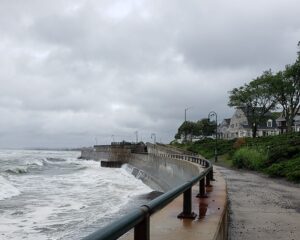I am a trauma survivor.
For me, that means throughout my life, I have experienced abuse and other things that caused long-lasting effects on my physical and mental health. I have been working for years toward healing from those experiences. But trauma is not just “dwelling on the past,” and it isn’t the same for everyone.
Disclaimer: I am not a mental health professional, nor have I ever been enrolled in an educational program on this subject. I have been studying what trauma is and the effects it causes for a few years now, but that study has been self-directed and does not qualify me as any type of expert. (Though I am an expert on my own experiences, as we all are experts on our own lives.) If you have experienced events that may have traumatized you, or if you want to learn more, I strongly recommend seeking help and/or education.
Trauma is not an event or even a series of events, but rather the lasting effects those events have on someone’s mind, brain, and body. (I use “mind” to mean thought processes and such, the more abstract things; and “brain” to mean the actual physical structure.) When someone experiences certain events, their systems respond in a way that can cause lasting, even permanent, changes to their thought patterns and emotions, those systems, and physical health, among other things.

However, not everyone responds to events in the same way, so not everyone, even if they experience the same exact event, will live with the same effects. In part, it’s about how their systems responded at the moment of the event; that’s where “fight, flight, freeze, or fawn” comes in. Someone whose systems react with “fight” will experience different effects from someone who freezes, for example.
In addition, someone who experiences a single traumatizing event will have different reactions and live with different effects–or, sometimes, no effects–than someone who experiences long-term, ongoing traumatization. (Some professionals call the effects of a single or short-term experience “post-traumatic stress disorder,” or PTSD, and call the effects of long-term, ongoing experiences “complex post-traumatic stress disorder,” or CPTSD. In the current version of the DSM, the manual used by professionals to diagnose mental health conditions, only PTSD is listed and is defined as effects of any trauma, whether a single incident or decades-long.)
It can also be about the support system they have in the aftermath of the event. Someone who is traumatized outside of their home and has a loving family and professional help to deal with the experience may not be as impacted, or may be impacted in different ways, from someone who is traumatized in their home and doesn’t have supportive family or access to professional services.
With my own experiences, I had love and support from my guides, but often not from other humans. And I was unable to access professional support until I was in my mid-thirties. Because these experiences began when I was very young and continued well into adulthood, I live with long-lasting impacts, some of which are likely to be permanent. It affects my way of operating in the world, my ability to comprehend how “humaning” works, and my self-image, among other things. I am on a healing journey, but it’s a journey I am unlikely to complete in this lifetime. I have, however, made progress, and I continue to do so.
Among the tools I’ve used in my healing journey are channeling and energy healing. When I realized how profoundly those things helped me, I chose to learn them so I could help others. And I chose to ignore the people who tried to convince me that I could only be a practitioner once I was “fully healed.”
While some people are able to “fully heal” (whatever that means to them) from trauma, for many of us, there won’t come a time when we are completely free from all effects of our experiences. We learn to manage those effects. We heal some aspects. But there will always be more work to do.
That’s why I believe that saying “You can’t be a practitioner (coach, energy healing, channeling, etc.) until you’re fully healed” is complete and utter bullshit. You absolutely can provide these services for others while you’re still on your own healing journey; the key is that you are *on* that journey. You’re progressing. You’re continuing to work on yourself and your own healing while helping others work on themselves and their healing.
If you aren’t willing to take your own healing journey, then no, you won’t be able to help others on theirs. You need to be honest with yourself about your experiences and the effects they’ve had on you, and about where you are in your healing journey. You need to be honest about the work you still need to do. If you aren’t able or willing to be honest, you won’t be able to help others.
But if you’re honest and are progressing in your own journey, there is no reason you can’t become a practitioner and support others on their journeys. No matter what anyone says. You, and only you, know whether you are actually in a place in your journey where you are able to support other people; as long as you are honest about that, you can do it.